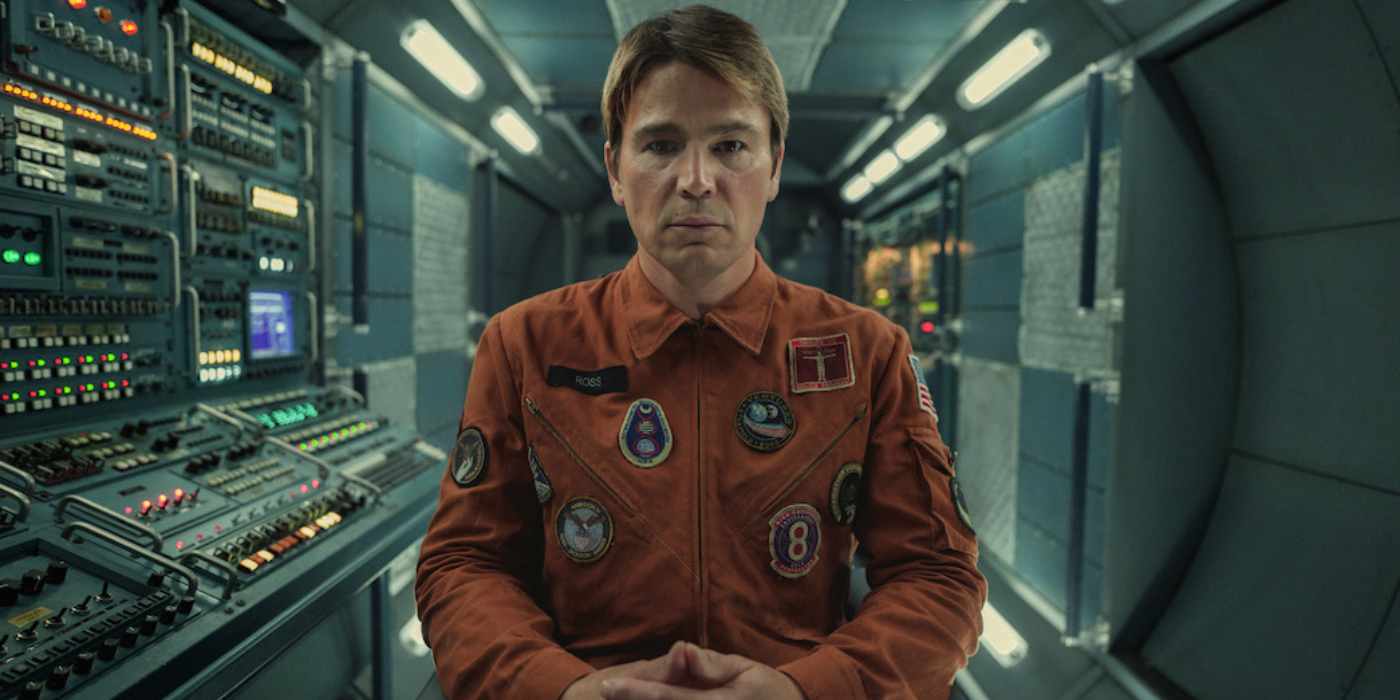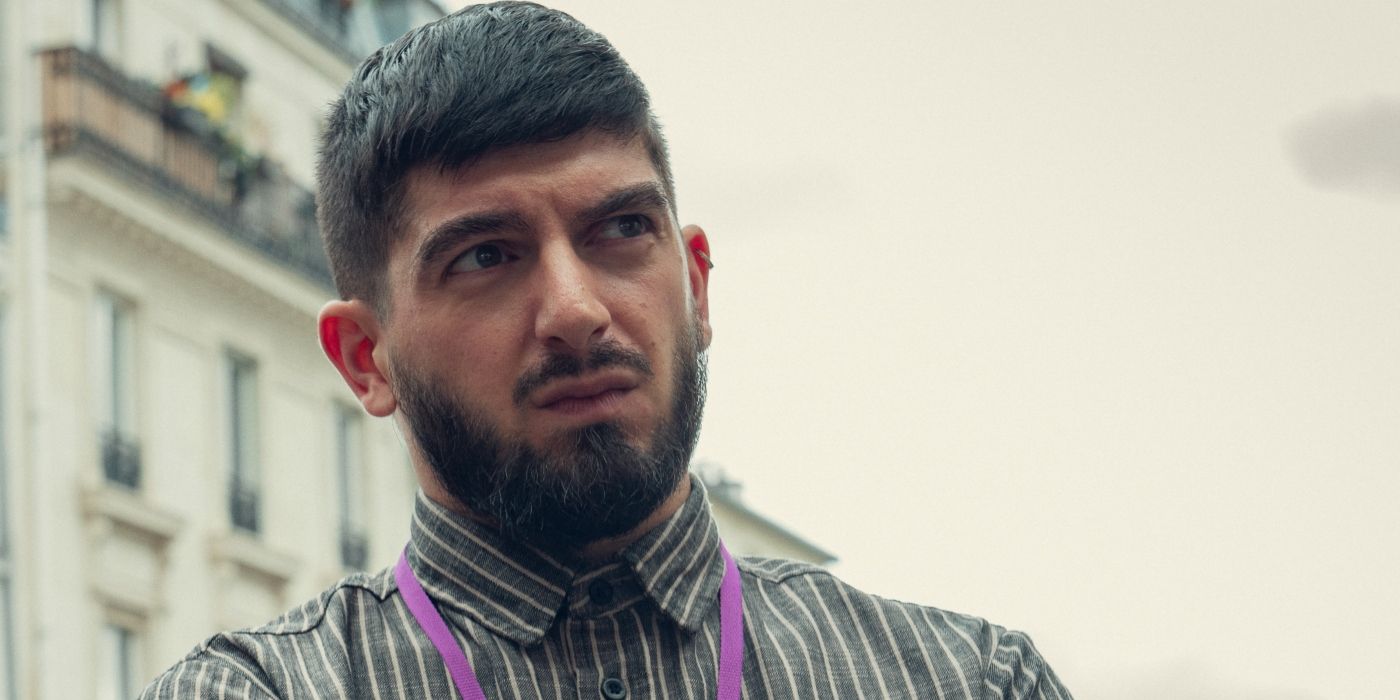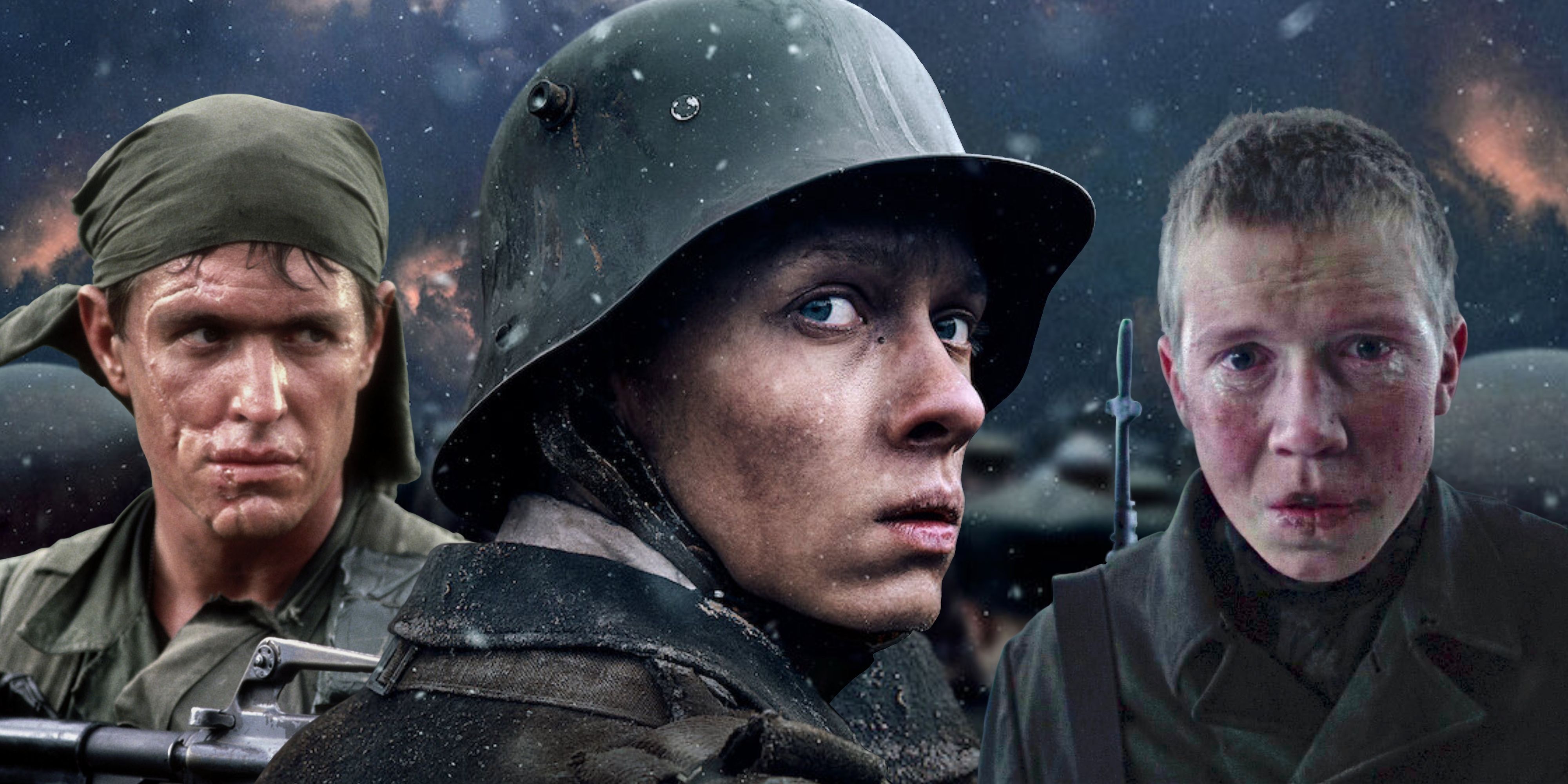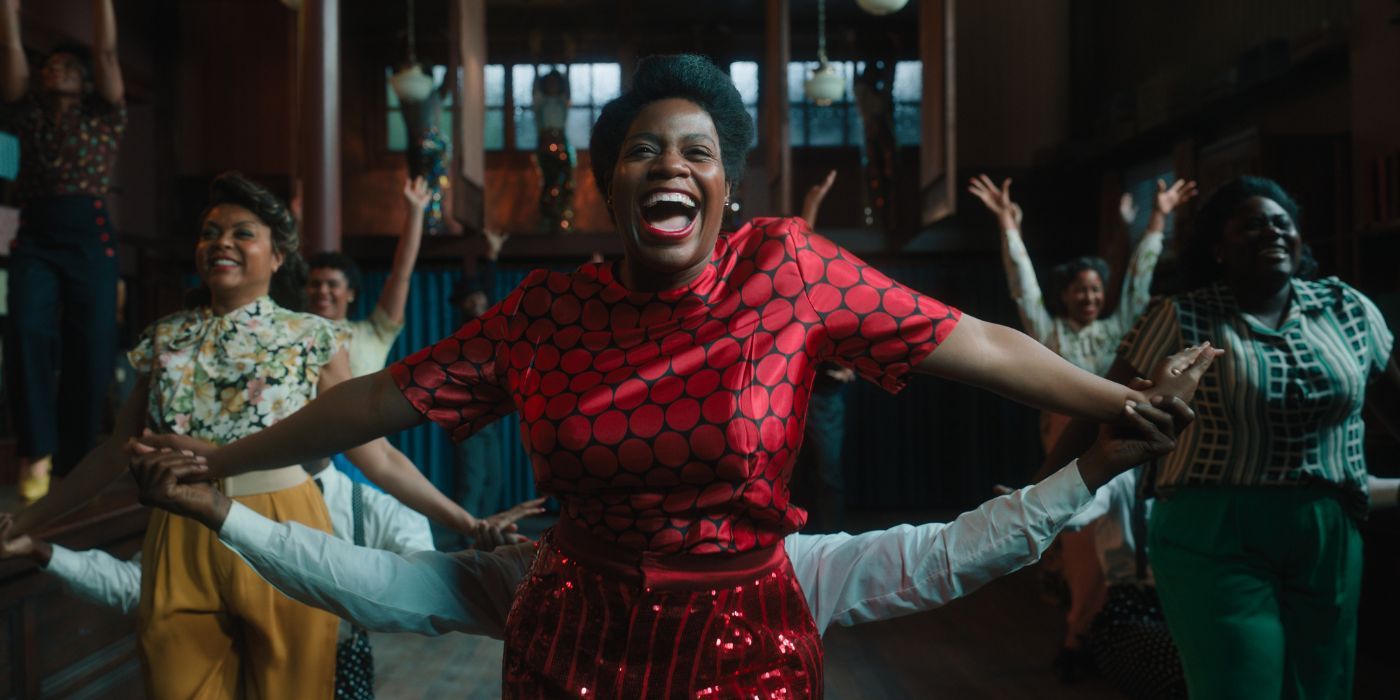The Big Picture
- The shocking twist at the end of “Beyond the Sea” feels forced and out of place, sacrificing character development for the sake of shock value.
- The episode fails to properly set up David’s violent turn, leaving viewers questioning the believability of his actions.
- Unlike previous episodes of Black Mirror, the ending of “Beyond the Sea” lacks the thematic connection and commentary on technology and society, making it less impactful.
The final moments of Black Mirror’s “Beyond the Sea” should be stomach-churning. The shocking ending echoes episodes of seasons past, pushing the characters over the edge and then leaving them to languish in the deeply depressing aftermath. But unlike those previous episodes, this one doesn’t work. David’s (Josh Hartnett) violent turn feels like too much of a jump from everything else the episode has set up, even as it does present a compelling dilemma for the surviving characters. But ultimately it only serves to be a jarring twist at the end for the sake of shock value at the expense of the characters and their story.
Black Mirror
An anthology series exploring a twisted, high-tech multiverse where humanity’s greatest innovations and darkest instincts collide.
- Release Date
- December 4, 2011
- Cast
- Douglas Hodge, Brian Pettifer, Jessie Cave, Hannah John-Kamen
- Genres
- Sci-Fi, Thriller
- Rating
- TV-MA
- Seasons
- 6
What Happened at the End of “Beyond the Sea”?
After the Charles Manson-esque Kappa (Rory Culkin) and his cult-like friends murdered David’s family before his eyes and destroyed his replica, his crewmate Cliff (Aaron Paul) offered to let him use his replica to visit Earth in hopes of helping him return to something resembling normalcy. While David was using the replica to paint a picture of Cliff’s family’s house as a thank you for the gesture, he became infatuated with Cliff’s wife Lana (Kate Mara). Once Cliff became aware of this infatuation, he lashed out at David and cut him off from accessing his replica. But David won’t accept this and fakes a damage report from outside their ship to distract Cliff long enough to use his replica to murder Lana and their son Henry (Daniel Bell). When Cliff returns and discovers what happened, David offers him a chair across the table on their ship, and the episode ends.
The central dilemma here is compelling, in a vacuum. Cliff can either take his revenge on David and doom them both to die out in space (they’re on a two-man mission), or he’ll be forced to work with the man who murdered his family for four more years. David’s actions ensure that they’re the only two who can understand each other: two men who lost everything, cut off from the world with nothing left to go back to. The offering of the chair across the table is David inviting them to finally exist on equal footing, something they’ve never had before — even before David’s family was killed, he had a loving relationship with them and was connected to life on Earth in a way that Cliff wasn’t. The ending invites the viewer to consider what they might do in that situation, and the ambiguity of it all would be a great way for a Black Mirror episode to end — if it worked.
Why the Ending of “Beyond the Sea” Doesn’t Work
David’s violent turn doesn’t work because the episode doesn’t put in the effort to set it up. Nothing we’ve seen so far indicates that he’s capable of such violence. Yes, he hits Henry after the boy smears his painting, but that doesn’t feel out of place in the episode’s 1960s setting. And it’s especially hard to imagine David acting against Lana, whom we see him form a genuine connection with more than he ever does with Cliff. Because the episode spends so much time with one of the two men using the replica, we don’t have much time to get to know how they act around each other. David and Lana have conversations about their shared interests, discussing art and books more than we ever see David and Cliff talk about anything that’s not work-related. Even with his relationship with Lana severed, it feels weird that he would care enough about Cliff to lash out at her to get to him based on everything the episode shows us.
That’s not to say this idea couldn’t have worked. David easily could have become detached enough from the realities of Earth by spending weeks and months effectively alone in space, but the episode doesn’t spend time to show David being isolated after he first uses Cliff’s replica. Neither does it show David demonstrating an obsession with Lana strong enough that it’s believable that he would resort to murder. He’s desperate and misreading Lana’s feelings, but up until Cliff vindictively shuts down the possibility of his ever using his replica again, David seems apologetic and even a little understanding of how he messed up. So when Cliff returns home to find that David brutally murdered his family as revenge, it feels like escalation for the sake of a shocking ending, rather than the inevitable conclusion of the story. It’s an interesting ending, but it loses its punch because the buildup just isn’t there.
‘Black Mirror’ Can Do Better Than “Beyond the Sea”
This shouldn’t be an issue for Black Mirror, a show that’s infamous for its brutal and dark endings. Previous episodes have featured digital consciousnesses being tortured for eternity, characters being revealed to have committed murder (or worse) after the whole episode was spent creating sympathy for them, and characters left completely alone after their actions have driven everyone they love away. An episode like “Fifteen Million Merits” spends an ample amount of its runtime highlighting exactly what happens to those who exist within its twisted system. By the time we reach the show’s climax and Bing’s (Daniel Kaluuya) impassioned speech against the horrors of their world is commodified into more shallow entertainment, we’ve already seen that same system absorb his friend Abi (Jessica Brown Findlay) in the same way. While we’re devastated by the way Bing’s efforts are undercut and used to perpetuate the injustices he was trying to fight against, we already know how this works, and the ending feels despairing and inevitable. Bing was never going to be able to change things on his own.
Or take Season 2’s “Be Right Back,” where Martha (Hayley Atwell) can’t bring herself to give up the AI-powered android of her dead boyfriend Ash (Domhnall Gleeson). The ending isn’t as shocking as “Fifteen Million Merits” or “Beyond the Sea,” but the quiet devastation of the knowledge that Martha can’t disassociate the Ash android from her dead boyfriend lingers with you because it’s the focus of the entire episode. There’s no twist to her grief, no shocking and bloody turn, only the culmination of the episode’s interrogation of using technology to deal with grief: there are no shortcuts to moving on.
While the ending of “Beyond the Sea” is darker and more violent than most Black Mirror episodes that have come before it, its bleak ending isn’t earned. It doesn’t follow up on a theme that’s been established by the rest of the episode, it doesn’t comment on the technology it highlights or societal systems it takes place in, and it actively destroys all the development that Cliff and Lana go through throughout the episode with its ending. It’s an elaborate “Would you rather?” question shaped like an overly long episode of TV. The worst part is it could have really had something with that central question the ending poses if it had only cared more about its characters than it did the shock value of its ending.
Black Mirror is available to stream on Netflix in the U.S.
Watch on Netflix




